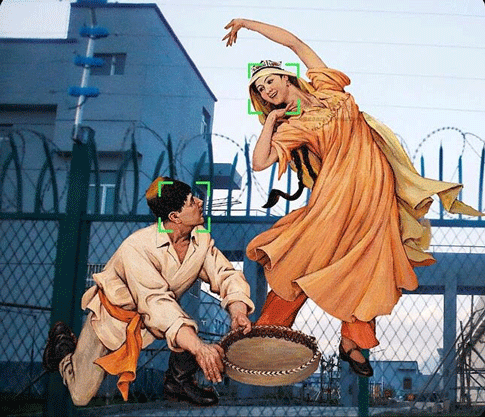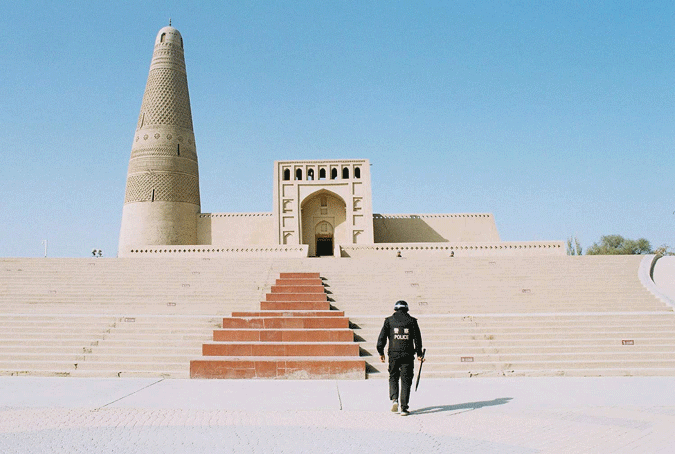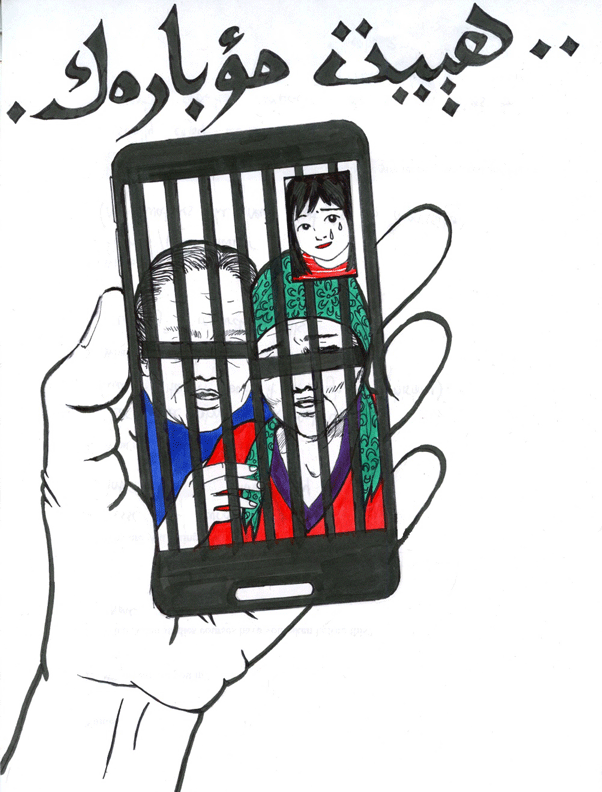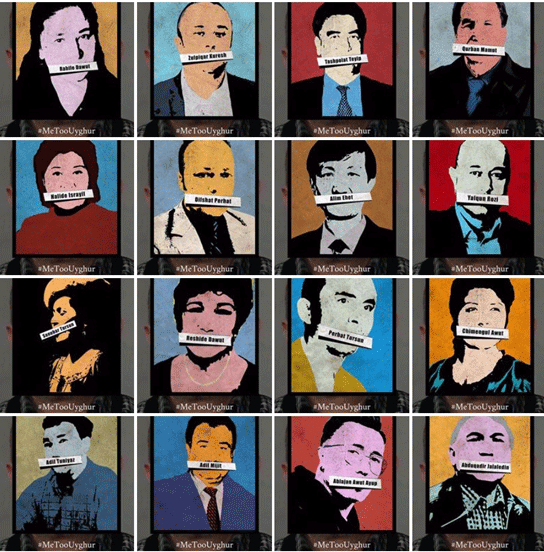Yi xiaocuo (一小撮), meaning “a small contingent” in Chinese, is a label often employed in the Communist Party of China’s propaganda to discredit dissident opinion and silence minority voices. In an act of protest, one such dissident has reclaimed the term, using it as their alias on their multimedia platform project Camp Album through which they amplify the voices of Uyghurs and other Turkic and Muslim minorities who are currently facing cultural genocide at the hands of the Chinese government.
In the Xinjiang Uyghur Autonomous Region, over a million people have been subjected to extreme surveillance, forced separation from their family, arbitrary detention, and much more in an effort to forcefully assimilate the region's minorities into Chinese culture.
With an increasing number of sources and testimonies coming to light, the international community has put heightened pressure on Chinese authorities, with the United Nations expressing grave concern about their human rights abuses that violate the Sustainable Development Goals for Peace, Justice and Strong Institutions as well as Reduced Inequalities.

In an interview with Asia Art Tours, Camp Album creator Yi Xiaocuo underscores the severity of the situation in their homeland as they relate personal experiences and testimonies of racism and trauma, demonstrating how they are in clear alignment with practices of genocide as defined in Article II of the UN’s 1948 Genocide Convention.
“The state sponsored orphanages, mosque destruction, tomb desecration, disappearance of intellectuals, confiscation of Uyghur and Kazakh books from homes, and so on all constitute the state’s deliberate intent to wipe out Uyghur and Kazakh cultural institutions and their future,” says Yi Xiaocuo. “What is happening in Xinjiang would fit the narrow definition of genocide, which includes cultural genocide in the form of forced assimilation.”

Yi Xiaocuo was in grad school in North America when the situation deteriorated in Xinjiang around 2016, and has not been able to see their family since. Needing a way to cope with the distress, they found a refuge in drawing and writing. Now, with Camp Album, they want to offer the same healing to people in their community while simultaneously raising awareness of the ongoing human rights violations in Xinjiang.

“For minority populations that have been deprived of a voice and freedom for so long, art is a way for self-empowerment and self-representation,” they explain as they discuss the motivations behind the project.
Camp Album accepts a wide range of media, from comic strips to photography to poetry, with many works being submitted anonymously for fear of their loved ones back home facing punishment.
On top of providing healing and raising awareness, Yi Xiaocuo views art as fulfilling another crucial task - documentation. In the past as in the present, genocides have been the subject of fierce debates, with different sides recounting different sets of events, consequently exacerbating the suffering of those directly affected by it. Camp Album seeks to counter this phenomenon.

“Art is deeply situated in the constant shifting contexts of the political environment, therefore, throughout time they constitute an irreplaceable form of repository for certain historical truth,” explains Yi Xiaocuo, illustrating why art is an important - even necessary - tool to fight violence in all of its manifestations.
In gathering and exhibiting creative works on a single platform, Camp Album instills a sense of solidarity, which in turn gives renewed strength and power to the “small contingent” of Xinjiang residents and exiles alike. In the words of Yi Xiaocuo, “Alone we are small, together we are many.”
For those who want to help, Yi Xiaocuo recommends visiting this page compiled by the Uyghur Human Rights Project, which outlines eight ways we can help Uyghurs, including how to stop forced labour. They also urge us to keep up to date with recent developments here, read victim testimonies and interviews, and consult the Xinjiang Documentation Project.
Lastly, they continually encourage those affected by the genocide to submit their work to campalbumproject@gmail.com to contribute their voices to the resistance.
